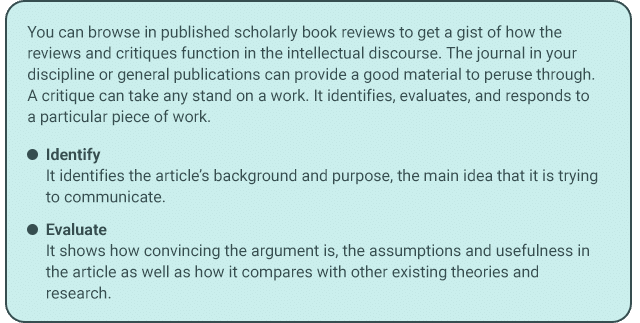If you have been given the task of writing an article review, you probably wonder how to write an effective critique of the article. There are several steps to writing a good critique of an article. Before you start writing, decide on a topic and write your article review. Make sure to tie your arguments and main points together into a coherent argument. In addition, make sure to state the implications of your review for further research or discussion. Your article review should comprise about 10% of your overall essay.
Examine the rationality of the article
The first step in writing an article critique is to examine the main argument of the piece. The article has already been written, so your role is to compare it with the literature of your field of study. Make sure that you have done your research well. Otherwise, you will end up merely repeating what has already been said. In addition to comparing it to other works, you must also examine the rationality of the main argument in your own article.
Examine the validity of the author’s arguments
When writing an article critique, you should check whether the author has made reasonable claims. You can do this by comparing the article to other examples of its genre. You should also examine the author’s overall argument and his or her introduction and conclusion. If possible, you should include the source materials mentioned in the article. Identifying unreliable sources of information is difficult. Identifying unreliable sources can be a challenge, so be sure to reference them in your critique.
To write an article critique, you should engage with the entire original source. You should read the article several times, define unfamiliar terms, and challenge the author’s arguments. Your critique should be no longer than two paragraphs. Remember to include the author’s message, credibility, and knowledge. Using these questions can help you create an insightful, well-crafted article critique. Once you’ve chosen your source, you’ll be ready to assess the author’s arguments.
Examine the language used by the author
When writing an article critique, you should examine the language used by the author. Whether the author uses academic jargon or plain language, the style of writing should be clear and logical. Moreover, you should be able to discern if there are any logical fallacies in the article. Often, undereducated readers accept information based on their feelings or emotions without carefully considering the supporting arguments. You should also watch out for common errors such as Ad Hominem, where the author attacks someone else, or Slippery Slope, where the author says that action always has the worst possible outcome.
If you’ve read the article in its entirety, it’s time to evaluate whether it is worthy of being critiqued. A well-written critique should include questions related to the article’s credibility, its message, and its citation. While some formatting styles have specific guidelines, the fundamental elements of an article critique are the same. The writer of the critique should have a good understanding of the subject matter. Whenever possible, don’t take notes while reading the article. Focus on the main point and its supporting points, as this will help you decide how to proceed with the critique.
Examine the structure of the article
An article critique should include an analysis of the author’s message and credibility. This means reading the article in its entirety and defining any terms you don’t understand. It should also include evidence supporting your points, such as quotes and paraphrasing. A well-written article critique will also include an appropriate number of references. To write an effective critique, there are many steps to follow. Here are a few tips:
Organize your notes. You may want to include an outline of your critique, or simply write a few topic sentences out of them. In addition to summarizing your thoughts, you can include relevant evidence or your own opinions. Remember that your critique must be both logical and well-supported. Be as clear as possible, as a poorly-written critique may not be readable. You may also want to refer to similar articles that explain the topic and its flaws.


